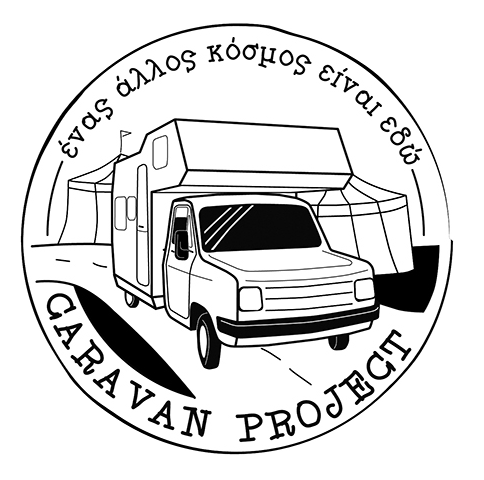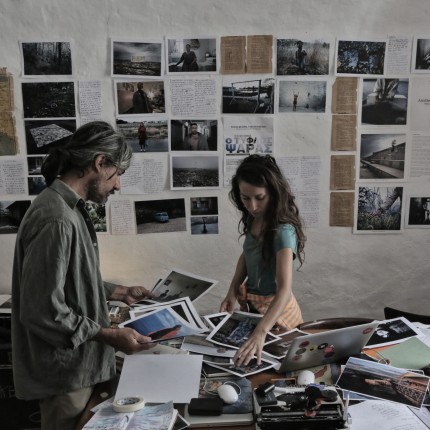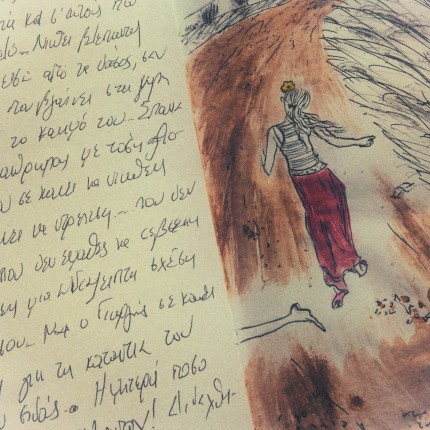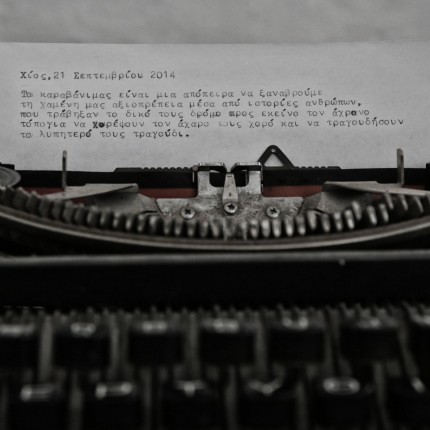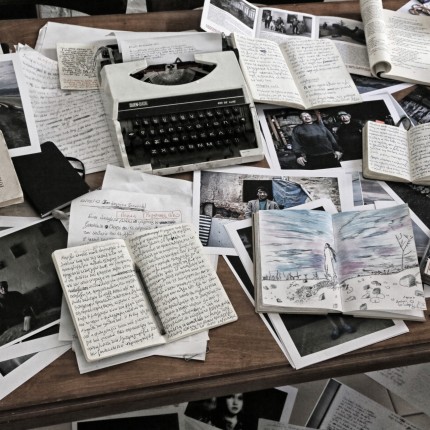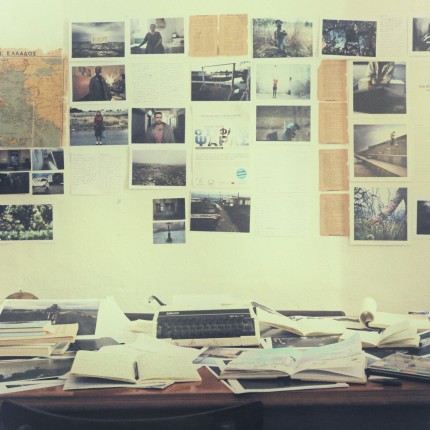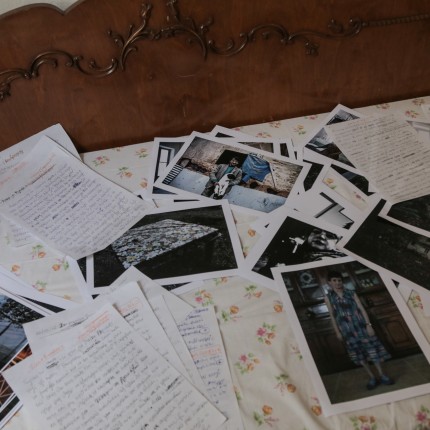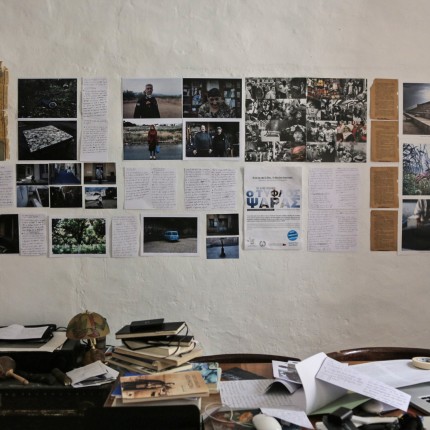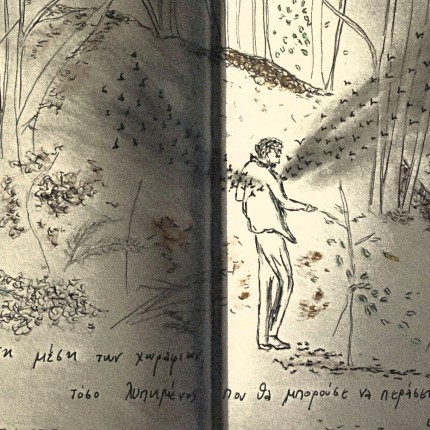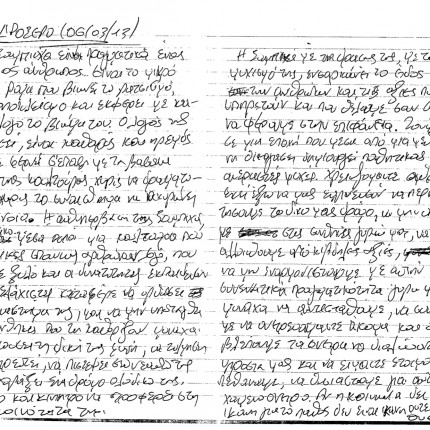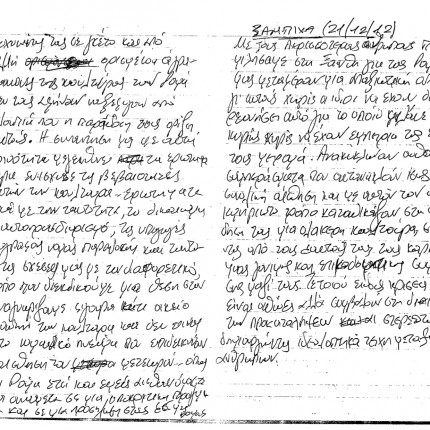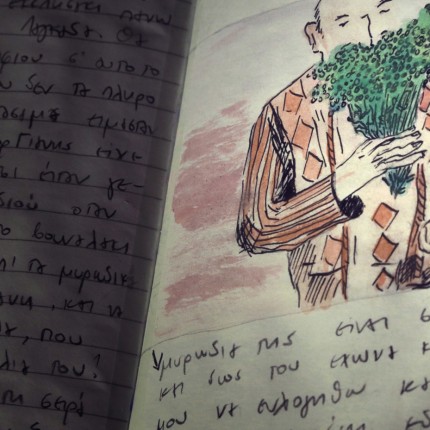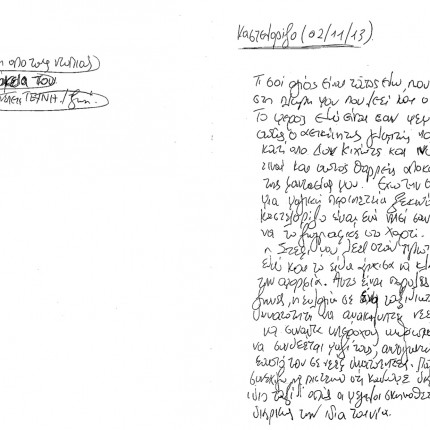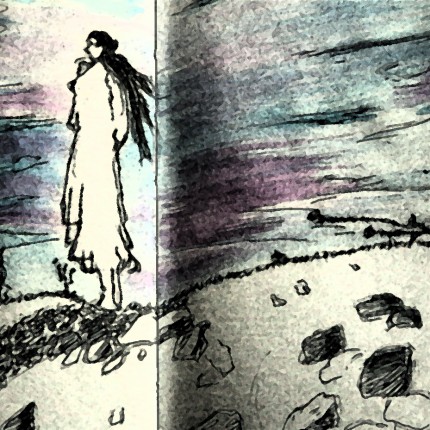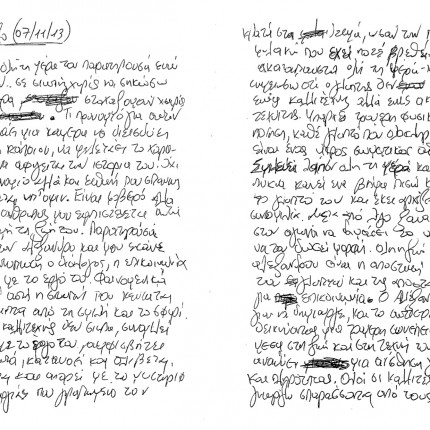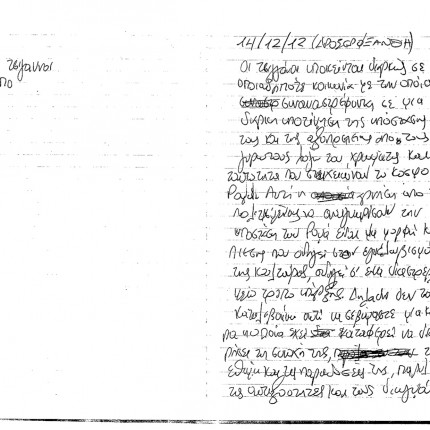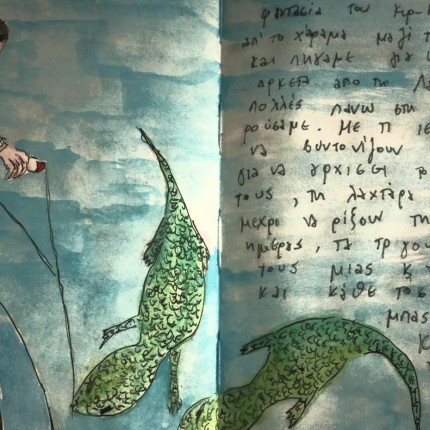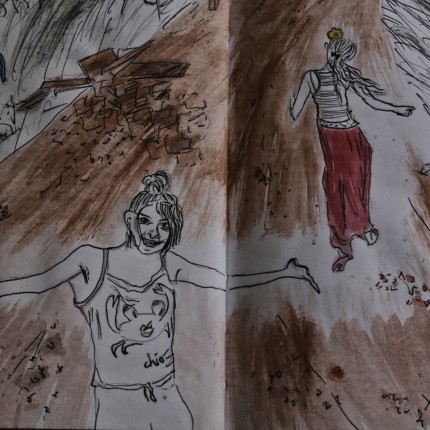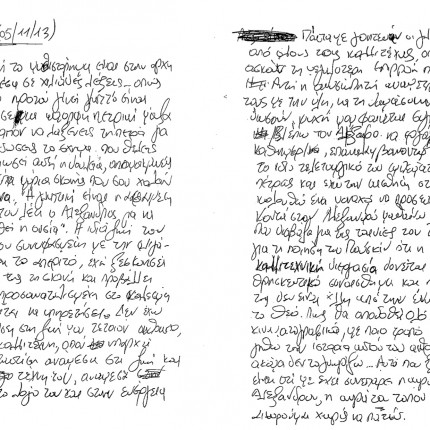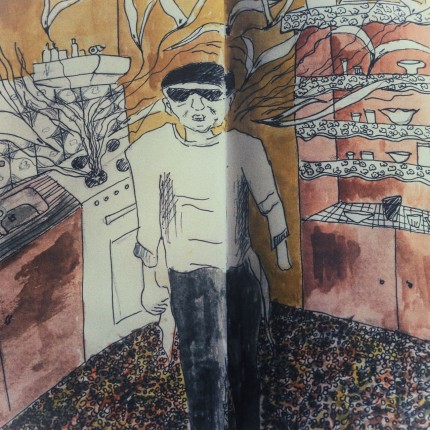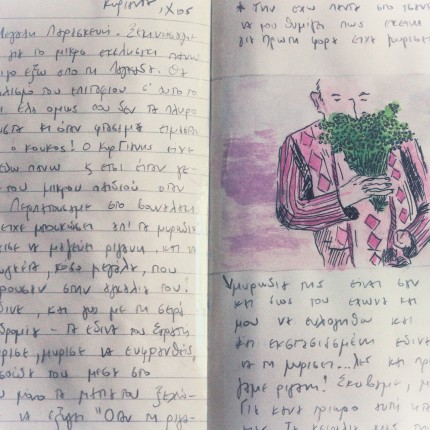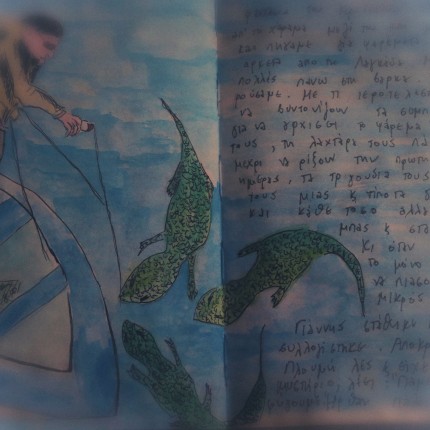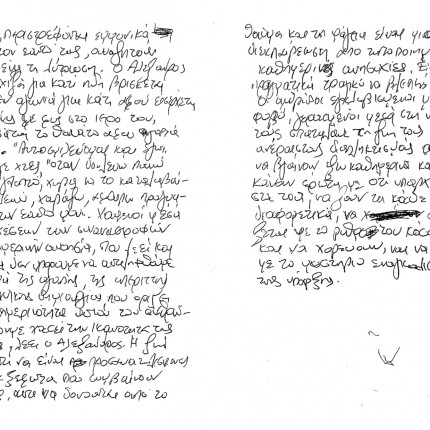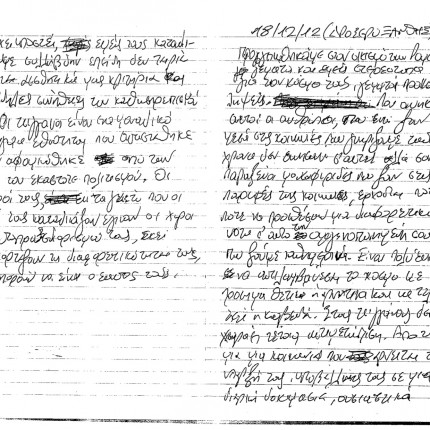Our current location:
Thessaloniki
(09/03 – 27/03/2016)
Exhibition Hours:
Monday – Friday
17:30 – 21:00
Saturday – Sunday
10:30 – 15:00 & 17:00 – 21:00
Our next location:
Athens
The exhibition, the people, the places, the stories
Making an exhibition is always a brave decision. And that is because between the creation and the exhibition, apart from the need for expression and creation –which constitutes their common starting point- there is a big difference. The exhibition is that moment when the spectator’s eye meets the creator’s vision. And at that moment, there should definitely occur some small or big revelation: one’s universe should penetrate the other’s universe, one’s system should coordinate with the other’s. And since the spectator, no matter how active he might be, always remains the receiver, the whole of the consideration, attention and responsibility falls on the creator.
So, in the case of the Caravan Project, before any planning or implementation of the exhibition, the creator had to redefine his goals based on his public, without betraying his own vision. He had to reexamine all the processes leading him to the production of each documentary, the need that prompted him to narrate each story, the reasons for which he would each time begin a journey, the reason why he feels the need to tell us about all this and why he believes it is worth the effort.
If each work is the result removed from a process, its exhibition is the circumstance which shall replace it on another process. A process about the meanings, the reasons, the information, the intentions; the coexistence of individual elements within the entirety we refer to as work. Any deconstruction of the work though, through the exhibition practice, does not aim to a work’s subversion, but to the revelation of the structures on which it has been made. And an exhibition should certainly avoid misinterpretation as well as didacticism, regardless its interpretative or educational character.
- More
Bearing all this in mind, the Caravan Project team tried to understand but also to attribute to this exhibition its reason for being, where, unsurprisingly, there are more than one reasons, and each decision made in the last few years inside this motor vehicle, each click of the photographic or video camera is multidimensional and complex.
It is the conviction that another world is here, provided that we look at it. A world formed by the diversity and the plurality, not by uniformity. A world where important places are traced all over Greece, not just Athens, and where these places represent something more that the frontiers of a country or a tourist destination. These places may be close to us or away from us, we may be a part of them or we may never have heard of them before. The individuals residing in them may be close to us or away from us, they may be us or completely unknown to us. We may have heard their stories or similar stories before, we may hear them for the first time, we may have imagined them or hoped that they exist.
It is these stories of everyday people unknown to us and of these unique places that teach us the hardest word: freedom. A right and a virtue at the same time, this concept seems to be fading away day by day in the modern era, the urban fabric, the daily routine, the convenience, the ever growing need for communication and expression which the progress of technology seems to relieve rather like a drug than a medicine.
The Caravan Project engages in an effort to teach us freedom again. To teach us how to see, try, desire and hope, how to distinguish poetry in the simplest of actions, to admire everyday life and to participate in it rather actively than passively and to intervene in life. To show us that humanity, solidarity, inspiration and creativity, collaboration and coexistence are not virtues lost in the depths of time, but simply decisions we are able to take. The way the heroes in each Caravan Project story do.
Alexios Papazacharias, curator
